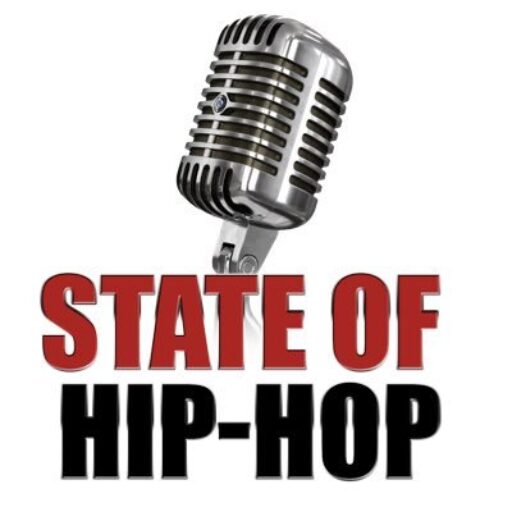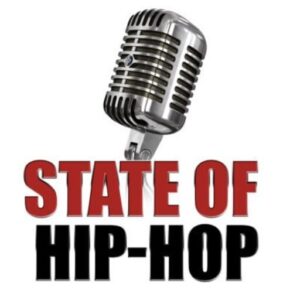Let’s talk about weed and rap. We know Hip Hop and cannabis have been intertwined for decades, but over the last 10 years, the relationship between hip hop and weed has evolved into a full-fledged cultural movement.
No one would argue what started as casual references in lyrics has grown into a lifestyle, with artists helping to normalize and even glamorize cannabis use.
Today, the influence of rap culture on the perception of marijuana is undeniable, making it “cool” while also adding to the growth, pun intended, of a lucrative cannabis industry.
Rap and Weed’s Humble Beginnings
This weed/rap relationship isn’t new. In the 1990s, iconic groups like Cypress Hill and artists like Snoop Dogg made marijuana a core part of their image. Think about it. Way before cannabis was legal in Cali. They were embodying the culture like it wasn’t a big deal.

Method Man, a founding member of the Wu-Tang Clan, was a key figure in shaping cannabis culture through his early music and persona. His 1994 smash hit “How High” with Redman is an iconic anthem that celebrates the joys of smoking weed, becoming a cornerstone of stoner culture. Beyond music, Method Man continued to normalize and celebrate cannabis through films like How High (2001), where he and Redman played weed-loving college students. His consistent advocacy and humorous, laid-back approach to cannabis have not only influenced generations of fans but also positioned him as a cultural icon within the weed-rap movement.

Fast forward to the 2010s and pretty much now, and the narrative around weed shifted from rebellion to lifestyle. That’s a fact. Then cannabis was no longer just about getting high—it became intertwined within the fabric of self-expression and creativity within the hip hop world.
Weed, Lyrics and Segue into Dollars
Make no mistake, one of the most influential figures in the weed-rap movement is Wiz Khalifa. This is a bonafide fact. His breakout 2010 mixtape Kush & Orange Juice is a love letter to marijuana, with songs like “The Statement” and “In the Cut” turning smoking weed into a ritual of coolness and chill vibes. Wiz didn’t stop there—he launched his own strain, Khalifa Kush, and partnered with cannabis companies, turning his brand into a multimillion-dollar business. He is a pioneer in the intersection between rap and cannabis. Period.

Now get this, similarly Curren$y has built an entire career on merging his laid-back sound with weed culture. Albums like Pilot Talk and songs like “Address” reference cannabis not just as a habit but as a lifestyle, inspiring fans to see marijuana as more than just a substance.
More recently, star artists like Travis Scott have seamlessly incorporated cannabis into their artistry. His chart-topping 2018 album Astroworld includes subtle nods to weed culture, presenting it as a part of the psychedelic, boundary-pushing world he creates through his music. More experimental in tone but still in the picture when it came to the trees. Of course Travis Scott is an entrepreneur so it was only right he launched his own cannabis brand, Cactus Farms which speaks to his “Cactus” merch theme.

Even icons like Jay-Z have gotten involved in the cannabis economy. In 2019, he joined California-based cannabis company Caliva as its Chief Brand Strategist, showing how hip hop’s influence extends beyond music into entrepreneurship.
Furthering Cannabis Within Hip Hop’s Economy
What’s really undeniable is the role hip hop played to help drive cannabis legalization efforts paving the way for artists to cash in on the booming weed economy.
Most prominently, brands like Cookies, founded by rapper Berner, are worth millions and have created a direct link between rap music and cannabis consumption.

Even Drake, known for his wide range of lyrical content rather than advocating cannabis use, has dabbled in the marijuana business. In 2019, he launched More Life Growth Co., proving that weed is no longer just a recreational plant but a serious business opportunity for hip hop’s elite to commercialize.
What’s Next for Weed in Hip Hop?
Cannabis legalization efforts are continuing to spread across the U.S. and beyond, and hip hop’s mainstay in shaping the perception of marijuana can’t be overstated.
What was once considered taboo has now become a cultural norm, thanks in part to the influence of rap artists and how some portray the plant in everyday lifestyles.
Including weed within chart-topping hits to promoting it as a core business venture, hip hop has made cannabis not just acceptable but aspirational. And that’s key as there needs to be more people who look like most rap artists leading the charge in the cannabis industry.
Thanks to artists like Wiz Khalifa, Snoop Dogg, Method Man, Redman and others, they have not only shifted the narrative around cannabis but have also positioned themselves to impact an agricultural industry that’s projected to reach $100 billion globally by 2030.
$100 billion. That part.

When it comes to the average hip hop fan, this isn’t just about blazing up—it’s about understanding how rap culture has played an instrumental role in shaping a worldwide phenomenon.
Weed isn’t just cool or accepted because it’s weed. Cannabis is cool because hip hop culture made it that way.
The post Hip Hop Economy: How Rap Made Weed Culture Cool and Lucrative appeared first on The Source Magazine.



